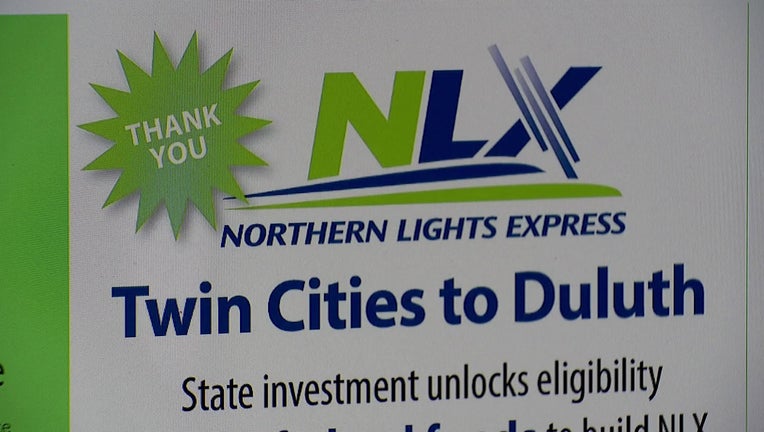MN lawmakers pull funding from Northern Lights Express train to Duluth

(FOX 9)
DULUTH, Minn. (FOX 9) - A bill approved over the weekend by Minnesota lawmakers pulled funding for the Northern Lights Express train, a proposal that would create a passenger train line running from the Twin Cities to Duluth.
End of Northern Lights Express?
What we know:
In a release on Sunday, House Republican Transportation Chair Rep. Jon Koznick (R–Lakeville) announced House File 1143 had been approved by the Senate.
The bill sends $77 million from the rail project to cover unemployment insurance costs for seasonal school workers.
The backstory:
In May 2023, the Minnesota Legislature approved $195 million to go toward the long-proposed Northern Lights Express. After this weekend's votes, roughly $108 million remains for the project.
Under the initial proposal, the train would have been run by Amtrak, making four round trips each day on BNSF tracks. Tickets would cost between $30 and $35., with the train running from Target Field to the Union Depot in Duluth, with several stops along the way.
However, the plan was contingent on federal funds, which would have covered 80 percent of the costs of the project, which haven't come through.
Train transportation struggles
What they're saying:
In a provided statement, Rep. Koznick said:
"For years, Democrats have spent hundreds of millions of dollars on wasteful rail projects that Minnesotans barely use and can’t afford. With the House and Senate voting to shift a significant amount of the state’s share of the project’s funding, the Northern Lights Express train is effectively dead, and taxpayers are better off because of it."
Dig deeper:
Earlier this year, the Met Council announced plans to shift the Northstar train line, which runs from downtown Minneapolis to Big Lake, to a bus service.
The decision comes as ridership has plummeted for the line following the pandemic – and as Rep. Koznick was pushing legislation to cut funding for the rail line, which the lawmaker said the line was costing taxpayers $11 million despite "near zero" ridership.

